The Myths of Modern
Medicine
The Myths of Modern
Medicine
The Alarming Truth about
American Health Care
John Leifer
ROWMAN & LITTLEFIELD
Lanham Boulder New York London
Published by Rowman & Littlefield
A wholly owned subsidiary of The Rowman & Littlefield Publishing Group, Inc.
4501 Forbes Boulevard, Suite 200, Lanham, Maryland 20706
www.rowman.com
16 Carlisle Street, London W1D 3BT, United Kingdom
Copyright 2014 by John Leifer
This book represents reference material only. It is not intended as a medical manual, and the data presented here are meant to assist the reader in making informed choices regarding wellness. This book is not a replacement for treatment(s) that the readers personal physician may have suggested. If the reader believes he or she is experiencing a medical issue, professional medical help is recommended. Mention of particular products, companies, or authorities in this book does not entail endorsement by the publisher or author.
All rights reserved. No part of this book may be reproduced in any form or by any electronic or mechanical means, including information storage and retrieval systems, without written permission from the publisher, except by a reviewer who may quote passages in a review.
British Library Cataloguing in Publication Information Available
Library of Congress Cataloging-in-Publication Data
Leifer, John, 1957 author.
The myths of modern medicine : the alarming truth about American health care / John Leifer.
p. ; cm.
Alarming truth about American health care
Includes bibliographical references and index.
Summary: The American healthcare system is terminally ill, astonishingly expensive, remarkably variable in quality and incapable of stemming the rising tide of chronic illnesses in our population. This book strips away the elaborately constructed myths that conceal the ugly underbelly of healthcare and lays bare the truth about an industry that serves special interest groups far better than it serves its patients. Just as the Affordable Care Act begins to change the healthcare landscape, Leifer offers a survival guide for anyone entering the healthcare system.
ISBN 978-1-4422-2595-4 (cloth : alk. paper)ISBN 978-1-4422-2596-1 (electronic)
I. Title. II. Title: Alarming truth about American health care.
[DNLM: 1. Delivery of Health CareUnited States. 2. Quality of Health CareUnited States. W 84 AA1]
RA412.2
368.38'200973dc23
2014019040
 TM The paper used in this publication meets the minimum requirements of American National Standard for Information Sciences Permanence of Paper for Printed Library Materials, ANSI/NISO Z39.48-1992.
TM The paper used in this publication meets the minimum requirements of American National Standard for Information Sciences Permanence of Paper for Printed Library Materials, ANSI/NISO Z39.48-1992.
Printed in the United States of America
Introduction: The End of Blind Faith and the Beginning of Transformational Change in Health Care
The American health care system is terminally ill. It is astonishingly expensive, remarkably variable in quality, and incapable of stemming the rising tide of chronic illness in our population.
Yet the majority of Americans believe it is the best system in the world and cling to the belief that, far from ailing, it delivers care superior to those of countries across the globe.
The system has obliged us by providing an elaborate set of myths about American health care that significantly shape our beliefs. These myths keep us blissfully ignorant about the true quality, safety, and value of the care we receive. This ignorance has a price: it leads us to draw erroneous conclusions about our conditions, fail to properly evaluate potential treatment options, and rarely question our providers competency.
This book is based on the premise that consumer empowerment begins with an understanding of the true state of the health care system. Such knowledge increases not only the consumers ability to receive appropriate care but also to take effective action to change the system. Armed with the correct information, consumers can make smart decisions for their health and the health of their families, as well as coalesce into social-action groups.
The book identifies ten myths that must be debunked to achieve a true appreciation for the condition of our system. It combines hard data with personal anecdotes collected over three decades of immersion in the industry. The identifying details for these anecdotes have been changed to maintain the anonymity of the individuals and institutions involved. In some cases, composite characters have been created.
The book also provides, where appropriate, specific steps that every consumer can take to optimize the quality, value, and effectiveness of the care they and their family receive. The epilogue serves as a consumers guide to social actionfor those readers wishing to play an active role in changing the dysfunctional health care system.
Throughout the book, the reader is reminded of their stewardship responsibility for their own health. Perhaps the most important lesson to be gleaned is the degree to which we can avoid encounters with the health care system by judiciously making smart decisions about our health.
If we are to heal the American health care system, we must understand how our false beliefs impair our ability to get efficient, effective, and safe care. Only then can we exercise stewardship responsibility for our own health. If patients understand how these myths influence their care, they might make better choices about their care, get more value from the system, and enjoy improved health and well-being. And if we all use the system differently, the process of reshaping it would begin to happen more naturally. We, as patients, can drive the reform of the system.
The Affordable Care Act has made health care reform one of the most hotly contested topics in America, but it does not address the core problems in our system. Meaningful health care reform isnt likely to happen as a result of legislative edicts from Washington. There is simply too much avarice and greed vying for its bounty. Reform will only happen when you as a patient, fully empowered with information, begin to assert your rights.
Myth 1
The United States Boasts the Best Health Care in the World
Betsy Lehman trusted her life to the American health care system. An award-winning journalist, Lehman was a rising star at the Boston Globe, where she wrote extensively about health care issues. So when the mother of two was diagnosed with a particularly aggressive type of breast cancer, she knew instinctively where to go to receive outstanding care. Lehman selected a top-notch teaching hospital that has long been recognized as one of the nations leading cancer hospitals.
Lehman had done her research. She knew that her best chance for survival was to undergo an experimental stem-cell transplant designed to kill the cancer cells that were systemically circulating throughout her body. She also knew that cyclophosphamide, one of the chemotherapeutic agents she would be given before the transplant, would have a powerful effect on her body.
Lehmans treatment with cyclophosphamide would occur over a four-day period. Each day she would receive a precise dose that was determined by measuring the surface area of her body. In total, she was to receive slightly more than 6,500 milligrams of cyclophosphamide. Due to a cascade of errors, she received the full 6,500 milligram dose every day for four consecutive days.
Despite the grievous error, Lehman appeared to be surviving the treatmentthat is, until immediately before her scheduled discharge. Although she protested that something was desperately wrong, her caregivers ignored her pleas for help. She never returned home. She died in the hospital from the massive overdose of the drugs purportedly used to heal her. There was no question as to culpability. The leadership of the hospital immediately accepted that responsibility.
Next page
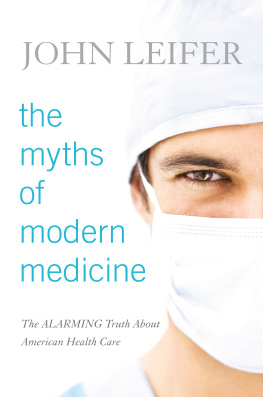

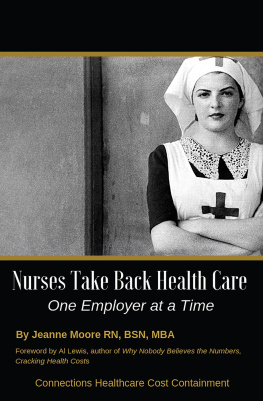
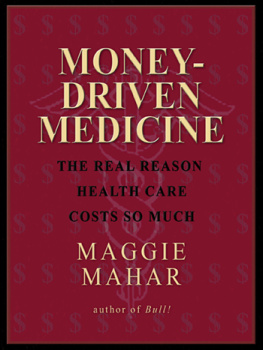
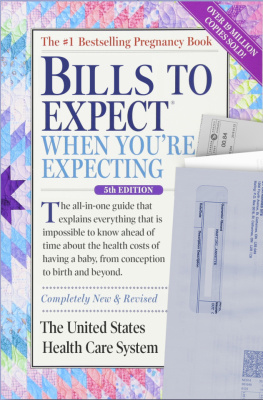
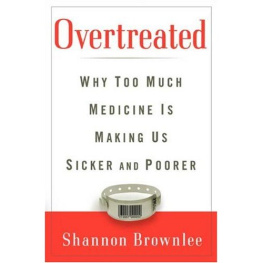

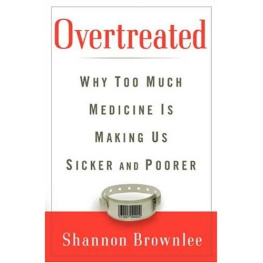
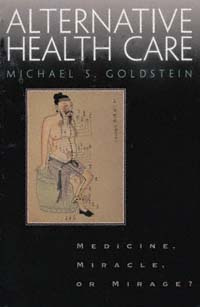
 TM The paper used in this publication meets the minimum requirements of American National Standard for Information Sciences Permanence of Paper for Printed Library Materials, ANSI/NISO Z39.48-1992.
TM The paper used in this publication meets the minimum requirements of American National Standard for Information Sciences Permanence of Paper for Printed Library Materials, ANSI/NISO Z39.48-1992.